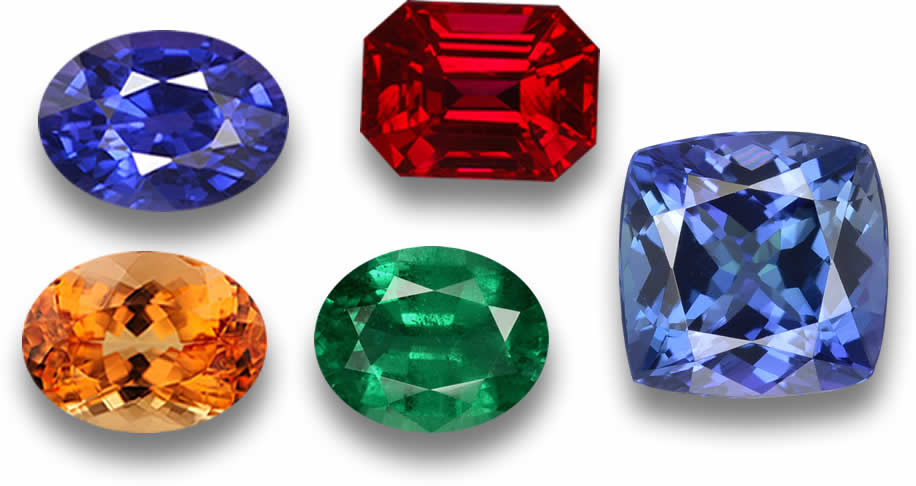Which Loose Gemstones (e.g., Rubies, Sapphires, Emeralds, Tanzanite) Offer the Best Long-Term Value?
Investing in loose gemstones has become an appealing option for those seeking assets with potential for long-term value appreciation. Unlike traditional investments, gemstones combine rarity, beauty, and market demand, making them a unique addition to a diversified portfolio. Among the most popular choices—rubies, sapphires, emeralds, and tanzanite—each offers distinct characteristics that influence their long-term worth. This article examines these gemstones, assessing their investment potential based on scarcity, durability, and historical performance as of April 2025.

Factors Influencing Long-Term Value
Several key factors determine a gemstone’s long-term investment value:
- Rarity: Limited supply or unique properties increase desirability and price over time.
- Durability: Harder stones (measured on the Mohs scale) resist wear, enhancing their longevity as assets.
- Market Trends: Consistent or growing demand from collectors and jewelers supports value retention.
- Origin Premium: Gems from renowned regions often command higher prices due to quality and prestige.
Rubies: The Timeless Classic
Rubies, particularly those from Myanmar (Burma), are prized for their vivid “pigeon’s blood” red color and exceptional hardness (9 on the Mohs scale). Their rarity—due to dwindling high-quality deposits—and strong demand in luxury jewelry markets position them as a top contender for long-term value. Auction records, such as a 25.59-carat Burmese ruby fetching $30.3 million in 2015, highlight their enduring appeal.
Sapphires: Versatile and Resilient
Sapphires, with a Mohs hardness of 9, offer durability and a wide range of colors, though blue varieties from Kashmir and Ceylon (Sri Lanka) are most coveted. Kashmir sapphires, nearly extinct from new mining, have seen prices soar, with a 26.66-carat stone selling for over $6 million in 2023. Their scarcity and broad market appeal make them a strong long-term investment.
Emeralds: Rich History, Steady Demand
Emeralds, prized for their deep green hue, score 7.5-8 on the Mohs scale, making them less durable than rubies or sapphires but still viable for investment. Colombian emeralds, known for their quality, consistently attract buyers, with a 10.77-carat stone sold for $2.1 million at Christie’s in 2024. Their historical significance and steady demand bolster their long-term value potential.
Tanzanite: The Modern Rarity
Tanzanite, discovered in the 1960s and found only in Tanzania, is a relatively new entrant with a Mohs hardness of 6.5-7, requiring careful handling. Its single-source origin and striking blue-violet color have driven rapid price increases, with high-quality stones now ranging from $300 to $1,200 per carat. As deposits near exhaustion, tanzanite’s value is poised for significant long-term growth.
Comparison of Long-Term Value Potential
The table below compares these gemstones based on factors critical to long-term investment value:
| Gemstone | Rarity | Durability (Mohs) | Top Origin | Price Range (per carat, 2025) | Value Trend |
|---|---|---|---|---|---|
| Ruby | Very High | 9 | Burma | $5,000 - $50,000+ | Strongly Increasing |
| Sapphire | High | 9 | Kashmir | $1,000 - $100,000+ | Strongly Increasing |
| Emerald | Moderate | 7.5-8 | Colombia | $500 - $15,000+ | Steady Growth |
| Tanzanite | High | 6.5-7 | Tanzania | $300 - $1,200 | Rapidly Increasing |
Note: Prices reflect high-quality stones and vary by size and market conditions.
Conclusion
Determining which loose gemstones offer the best long-term value depends on an investor’s priorities. Rubies and sapphires, with their exceptional durability and scarcity, lead for those seeking maximum stability and prestige, particularly from top origins like Burma and Kashmir. Emeralds provide steady growth with rich historical appeal, while tanzanite offers high potential due to its limited supply and rising popularity. Each gemstone presents a compelling case, making careful evaluation of rarity, origin, and market trends essential for maximizing long-term returns.

